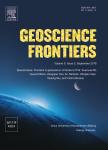Progress of machine learning in geosciences:Preface
Progress of machine learning in geosciences:Preface作者机构:Department of Civil and Environmental EngineeringMichigan State University BEACON Center for the Study of Evolution in ActionMichigan State University Hanson Center for Space ScienceUniversity of Texas at Dallas
出 版 物:《Geoscience Frontiers》 (地学前缘(英文版))
年 卷 期:2016年第7卷第1期
页 面:1-2页
核心收录:
学科分类:12[管理学] 081801[工学-矿产普查与勘探] 1201[管理学-管理科学与工程(可授管理学、工学学位)] 081104[工学-模式识别与智能系统] 08[工学] 0708[理学-地球物理学] 0818[工学-地质资源与地质工程] 0835[工学-软件工程] 0811[工学-控制科学与工程] 0812[工学-计算机科学与技术(可授工学、理学学位)]
主 题:Progress of machine learning in geosciences BPNN
摘 要:In the past two decades, artificial intelligence (AI) algorithms have proved to be promising tools for solving several tough scientific problems, As a broad subfield of AI, machine learning is concerned with algorithms and techniques that allow computers to "learn". The machine learning approach covers main domains such as data mining, difficult-to-program applications, and soft- ware applications. It is a collection of a variety of algorithms that can provide multivariate, nonlinear, nonparametric regression or classification. The remarkable simulation capabilities of the ma- chine learning-based methods have resulted in their extensive ap- plications in science and engineering. Recently, the machine learning techniques have found many applications in the geoscien- ces and remote sensing. More specifically, these techniques are proved to be practical for cases where the system's deterministic model is computationally expensive or there is no deterministic model to solve the problem (Lary, 2010).



